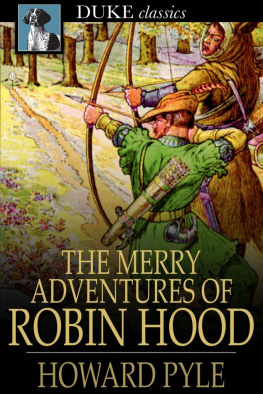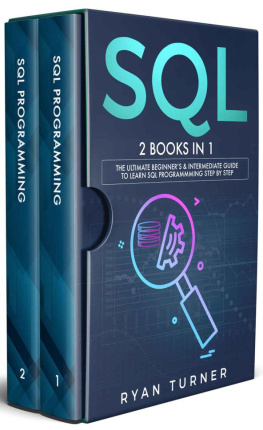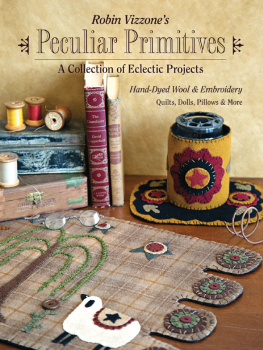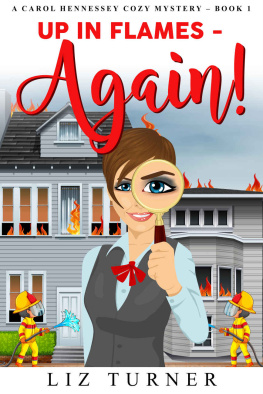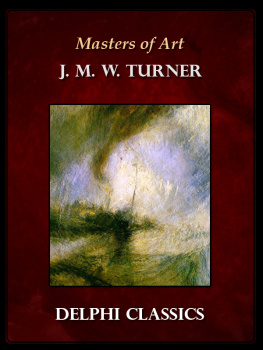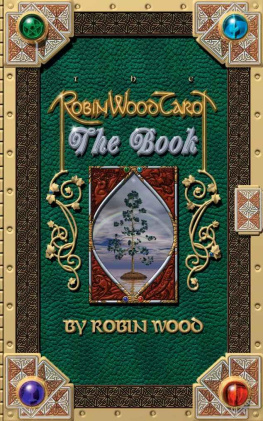Robin Turner - Lojban for beginners
Here you can read online Robin Turner - Lojban for beginners full text of the book (entire story) in english for free. Download pdf and epub, get meaning, cover and reviews about this ebook. year: 2002, genre: Art. Description of the work, (preface) as well as reviews are available. Best literature library LitArk.com created for fans of good reading and offers a wide selection of genres:
Romance novel
Science fiction
Adventure
Detective
Science
History
Home and family
Prose
Art
Politics
Computer
Non-fiction
Religion
Business
Children
Humor
Choose a favorite category and find really read worthwhile books. Enjoy immersion in the world of imagination, feel the emotions of the characters or learn something new for yourself, make an fascinating discovery.

- Book:Lojban for beginners
- Author:
- Genre:
- Year:2002
- Rating:5 / 5
- Favourites:Add to favourites
- Your mark:
- 100
- 1
- 2
- 3
- 4
- 5
Lojban for beginners: summary, description and annotation
We offer to read an annotation, description, summary or preface (depends on what the author of the book "Lojban for beginners" wrote himself). If you haven't found the necessary information about the book — write in the comments, we will try to find it.
Lojban for beginners — read online for free the complete book (whole text) full work
Below is the text of the book, divided by pages. System saving the place of the last page read, allows you to conveniently read the book "Lojban for beginners" online for free, without having to search again every time where you left off. Put a bookmark, and you can go to the page where you finished reading at any time.
Font size:
Interval:
Bookmark:
This work is licensed under a Creative Commons Attribution 2.5 License.
| Preface lidne prosa |
| Lojban For Beginners velcli befi la lojban. bei loi co'a cilre |
|---|
This document is an introductory course on Lojban, consisting of fifteen lessons. It has been authored by Robin Turner and Nick Nicholas, and gives a gentle introduction to the structure of the language. Robin authored lessons 18 and 1011 in 1999; Nick added to the existing lessons, and authored lessons 9 and 1215, in 2001.
The material covered in this course should be sufficient to allow the learner to understand most of the Lojban they are likely to see in the online Lojban discussion groups, or in the publications of the Logical Language Group. For information on Lojban, please contact the Logical Language Group:
Bob LeChevalier
The Logical Language Group, Inc.
2904 Beau Lane
Fairfax , VA 22031
U.S.A.
(+1 703) 385-0273
<>
http://www.lojban.org
Lojban is likely to be very different to the kinds of languages you are familiar with which certainly include English. If a point of grammar or logic seems inscrutable at first, don't hesitate to move on, and come back to it later. Likewise, some of the exercises are trickier than others (particularly the translation exercises at the end of each lesson.) If you can't work out the answer to a particular question, feel free to skip it but do look at the answer to the question, as there are often useful hints on Lojban usage in there. The answers to the exercises are at the end of each lesson.
Occasionally we use brackets to clarify the grammatical structure of Lojban in our examples. These brackets are not part of official Lojban orthography, and are included only for paedagogical purposes.
Robin is English (residing in Turkey), and Nick is Greek-Australian (residing in the U.S.A.) So don't be surprised if you see some unfamiliar language usage in this text. We are particularly unrepentant about using Commonwealth spelling.
Our thanks to the Lojbanists who have reviewed these lessons; in particular, Pierre Abbat, John Clifford, John Cowan, Bjrn Gohla, Arnt Richard Johansen, John Jorgensen, Nora Tansky LeChevalier, Jorge Llambas, Robin Lee Powell, Adam Raizen, Anthony Roach, Tim Smith, Rob Speer, Brion Vibber. Thanks also to Robin Lee Powell for providing the infrastructure for publishing the course in progress, and to Paul Reinerfelt for his help in producing the TeX version of the text.
ni'o le dei seltcidu cu te ctuca be loi co'a cilre bei fo la lojban. gi'e se pagbu lo pamumei .i le go'i cu se finti la'o gy. Robin Turner gy. joi la'o gy. Nick Nicholas gy. goi la nitcion. gi'e frili jai junri'a fo le stura be le bangu .i la robin. finti le 1moi bi'i 8moi .e le 10moi bi'i 11moi pagbu ca la 1999nan .i la nitcion. jmina fi le pu zasti pagbu gi'e finti le 9moi .e le 12moi bi'i 15moi vau ca la 2001nan.
ni'o lei datni poi se cusku le dei te ctuca cu pe'i banzu lenu ka'enri'a le cilre lenu jimpe piso'a loi lojbo poi lakne fa lenu tcidu ke'a vecu'u le jondatnymu'e ke lojbo casnu girzu .a le se prigau be la lojbangirz..i mu'i tu'a loi tcila pe la lojban. ko te notci fo la lojbangirz. noi se judri zoi gy.
Bob LeChevalier
The Logical Language Group, Inc.
2904 Beau Lane
Fairfax , VA 22031
U.S.A.
(+1 703) 385-0273
<>
http://www.lojban.org
ni'o la lojban. cu la'a mutce frica le bangu poi slabu do zi'epoi ju'o se cmima le glico .i ko fau lo da'i nu lo nandu pe le gerna .a le logji cu simlu loka to'e ke frili se jimpe co'a lenu tcidu cu zukte lenu rivbi tu'a le nandu gi'e krefu troci tu'a ri baku .i pa'abo su'o cipra jufra cu zmadu su'o cipra jufra leni tcica nandu .i go'i fa ra'u le nunfanva cipra jufra pe le fanmo be ro te ctuca pagbu .i za'o lenu do na pu'i jdice le danfu be lo preti kei ko co'u troci gi'e ku'i catlu le danfu be le cipra jufra .imu'ibo le danfu so'iroi jarco lo plixau se stidi pe lenu pilno la lojban..i le danfu be le cipra jufra cu diklo le fanmo be ro te ctuca pagbu
ni'o mi so'iroi pilno lo girzu sinxa lerfu mu'i lenu ciksi le gerna stura be la lojban. be'o pe le mi mupli seltcidu .i le girzu sinxa lerfu genai pagbu le se zanru ke lojbo ke nunciska ciste gi se pilno fi le nu po'o ctuca
ni'o la robin. cu glico gi'e xabju le gugdrturkie .ije la nitcion. cu xelso sralo gi'e xabju le merko .i seki'ubo ko na se spaji tu'a loi glibau selpli pe le dei seltcidu zi'epoi na slabu do .i mi ra'u to'e xenru lenu pilno le glico se jitro gugde bo girzu ke valsi lerfu se cuxna ciste
ni'o mi ckire le lojbo poi cipygau fi le kamdrani le dei te ctuca zi'eno'u la. pier.abat. joi la biorn.golys. joi la djan.iorgensen. joi. la .arnt.rikard.iuxansen. goi la tsali ge'u joi la xorxes.jambi,as. joi la djan.kau,n. joi la djan.klifyrd. goi la pycyn. ge'u joi la noras.tanskis.lecevaLIER. joi la rabin.lis.pau,el. joi la .adam.reizen. joi la .antonis.routc. joi la tim.smit. joi la rab.spir. joi la braiyn.viber..i ckire ji'a la rabin.lis.pau,el. ce'e lenu sabji le jicmu be lenu gubgau le ve ctuca ca'o lenu finti pe'eje la paul.rainerfelt. ce'e lenu sidju lenu cupra le seltcidu peta'i la tex.
| Lojban For Beginners velcli befi la lojban. bei loi co'a cilre | Sounds, names and a few attitudes |
| Lojban For Beginners velcli befi la lojban. bei loi co'a cilre |
|---|
The first thing you need to do when you learn a foreign language is to become familiar with the sounds of the language and how they are written, and the same goes for Lojban. Fortunately, Lojban sounds (phonemes) are fairly straightforward.
There are six vowels in Lojban.
| a | as in father (not as in hat) |
| e | as in get |
| i | as in machine or (Italian) vino (not as in hit) |
| o | as in bold or more not as in so (this should be a 'pure' sound.) |
| u | as in cool (not as in but) |
These are pretty much the same as vowels in Italian or Spanish. The sixth vowel, y, is called a schwa in the language trade, and is pronounced like the first and last A's in America (that's English America, not Spanish.) It's the sound that comes out when the mouth is completely relaxed.
Two vowels together are pronounced as one sound (diphthong). Some examples are:
| ai | as in high |
| au | as in how |
| ei | as in hey |
| oi | as in boy |
| ia |
Font size:
Interval:
Bookmark:
Similar books «Lojban for beginners»
Look at similar books to Lojban for beginners. We have selected literature similar in name and meaning in the hope of providing readers with more options to find new, interesting, not yet read works.
Discussion, reviews of the book Lojban for beginners and just readers' own opinions. Leave your comments, write what you think about the work, its meaning or the main characters. Specify what exactly you liked and what you didn't like, and why you think so.




